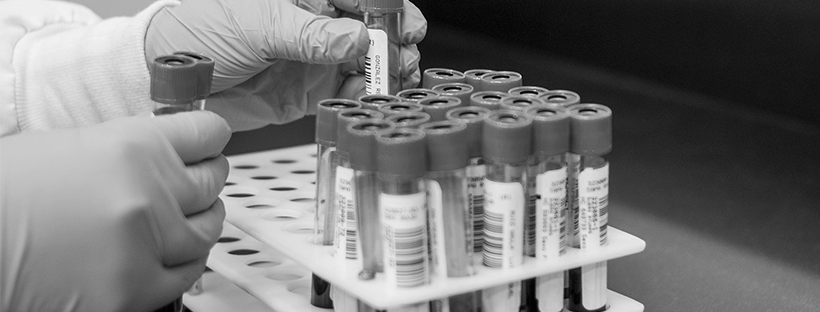The research group of Pediatric Oncology deals with the pathogenesis of the childhood tumour neuroblastoma that develops from precursor cells of the neural crest during embryogenesis. Therefore, Therefore, neuroblastoma predominantly affects young children. As the event-free survival of children with unfavorable prognostic parameters is only 35%, it is essential to develop treatment approaches specifically tailored to neuroblastoma in the sense of personalized therapy.
The transcription factor FOXO3 is involved in a plethora of cellular outcomes such as cell death, cell cycle arrest, autophagy, metabolism, invasion, chemotherapy resistance, metastasis and longevity. The purpose is therefore to identify small molecular compounds that modulate the function of FOXO3 in aggressive, chemo-resistant, and generally incurable tumors
The research focus is dedicated to analyze the impact of the FOXO3 specific small molecular compounds identified by a medium-throughput fluorescence polarization assay screening in a drug-repositioning strategy on cancer stem cells (CSCs). CSCs are subpopulations of aggressive, undifferentiated, multipotent, self-renewing tumor cells. In neuroblastoma, CSCs are considered to be responsible for tumor heterogeneity, genetic instability, therapeutic resistance, post-therapeutic relapse, and subsequent metastatic progression.







